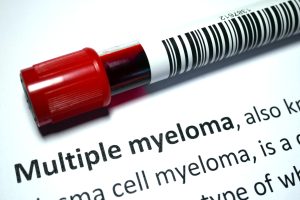
24 RCCA Physicians Named to 2025 Castle Connolly ‘Top Doctors’ List for Exceptional Cancer Care
A cancer diagnosis can be frightening. An individual may worry about how, or if, they will get better. The future becomes unclear and the strain
HIPAA Alert: Potential Data Breach Learn More
Questions on Oncology, Hematology and/or Infusion Clinical Services due to COVID-19 Crisis – CALL 833-698-1623
Important Information for Our Patients Regarding the Coronavirus.
RCCA Providing Area Cancer Patients with Access to Care During Coronavirus Outbreak
RCCA Offering Patients Virtual Visits During Coronavirus Pandemic
Certain types of cancers use the body’s natural hormones to grow and spread. These cancers are called hormone receptor-positive or, more commonly, HR-positive. For these types of cancers, hormone therapy may be part of the overall, personalized treatment plan that patients receive at Regional Cancer Care Associates.
If you have breast or prostate cancer, your oncologist will likely discuss whether hormone therapy is right for you. Here’s what you need to know about hormone therapy and why it may help in your fight against cancer.
Hormone therapy works in one of two ways: It will either suppress the body’s ability to make the hormones that feed certain cancers, or it will interfere with how those hormones behave. Hormone therapy generally is used in conjunction with other treatments, including surgery and radiation therapy. It may be used before these procedures to reduce the size of the tumor, or after these therapies to help prevent the cancer from coming back. Hormone therapy may also be used to kill cancer that has metastasized (spread to other parts of the body).
Hormone therapy can be delivered in pills, as injections, or by surgically removing the organs that produce estrogen and progesterone (ovaries) and androgens (testicles).
The most common side effects of hormone therapy for women include:
The most common side effects of hormone therapy for men include:

Approximately two out of three breast cancers are hormone receptor-positive, meaning they have proteins that attach to estrogen or progesterone and use these hormones to grow. For patients with these types of breast cancer, hormone therapy may help:
Most prostate cancers feed on testosterone, which is why your oncologist may suggest hormone therapy, depending on the stage of your cancer and the need to supplement other therapies. Hormone therapy may be a part of the overall treatment plan to:
Whether hormone therapy should be part of your treatment plan depends on a number of factors, including the type of cancer you have, how much the cancer has progressed, and your overall health. If you’re interested in a consultation with one of the expert oncologists at Regional Cancer Care Associates, contact us today. We’ll set up an appointment for you at the Connecticut, Maryland, or New Jersey location that’s most convenient for you.

A cancer diagnosis can be frightening. An individual may worry about how, or if, they will get better. The future becomes unclear and the strain

A lung cancer diagnosis can be life-changing, bringing uncertainty and many questions about available treatments. At Regional Cancer Care Associates (RCCA), we understand the importance

Multiple myeloma (MM) is a rare type of blood cancer that often develops without early symptoms, making awareness of risk factors essential. Regional Cancer Care

Regional Cancer Care Associates is one of fewer than 200 medical practices in the country selected to participate in the Oncology Care Model (OCM); a recent Medicare initiative aimed at improving care coordination and access to and quality of care for Medicare beneficiaries undergoing chemotherapy treatment.